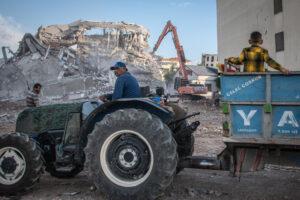Speaking the language of unity in Brussels
Elio Di Rupo has called for a network of bilingual schools in Brussels and areas at the so-called ‘language frontiers'. The proposal makes both pedagogical and political sense.
Di Rupo believes that bilingual primary and secondary schools are important because: “If Flemings and Walloons want to remain one country, they have to understand each other.” And language is an important step towards promoting understanding.
Owing to the nature of the long and bitter language struggle in Belgium, schools in the country are taught primarily in the medium of one or the other of the country's three official languages. Other languages are taught as second or foreign languages. However, the bilingual ‘immersion' method requires both the two languages – here, Dutch and French – to be used as actual languages of instruction in order for pupils to develop a natural grasp of the languages.
Perhaps fearing a return to the old monolingual French education system, many Flemish politicians reacted negatively to the proposal. The Open VLD liberal party found the idea “unthinkable”, according to one of its politicians.
Some politicians couched their opposition in pedagogical concerns. “In our view, multilingualism stems from a good command of Dutch,” opined Khatleen Helsen of the Christian democratic CD&V.
“Immerse linguistically weak children in multiple languages and you risk that they become zero-lingual,” according to Flemish Education Minster Frank Vandenbroucke of the socialist SP.A.
However, despite problems, bilingual education has scored major successes in countries like Switzerland and Canada. In addition, an experimental programme run by the Walloon community has produced positive results among the community which is traditionally the weakest at languages in Belgium.
If Flanders does not take on this idea and lets Wallonia pursue it alone, it risks not only national unity among the coming generations, but also the competitive edge its multilingual population currently enjoys.



Pingback: Words without frontiers in Belgian schools - The Chronikler